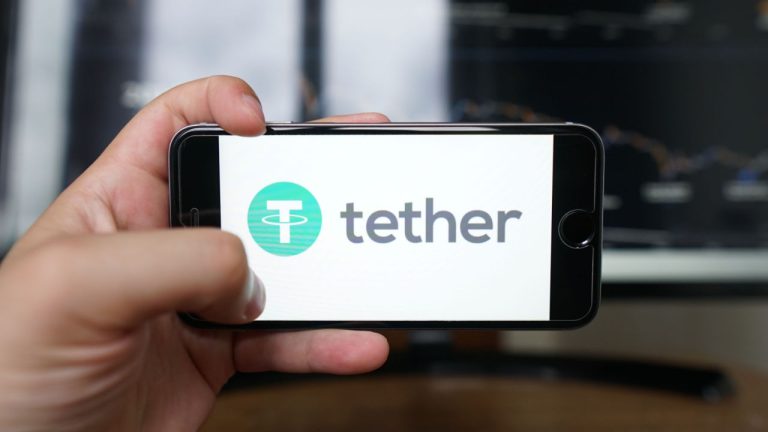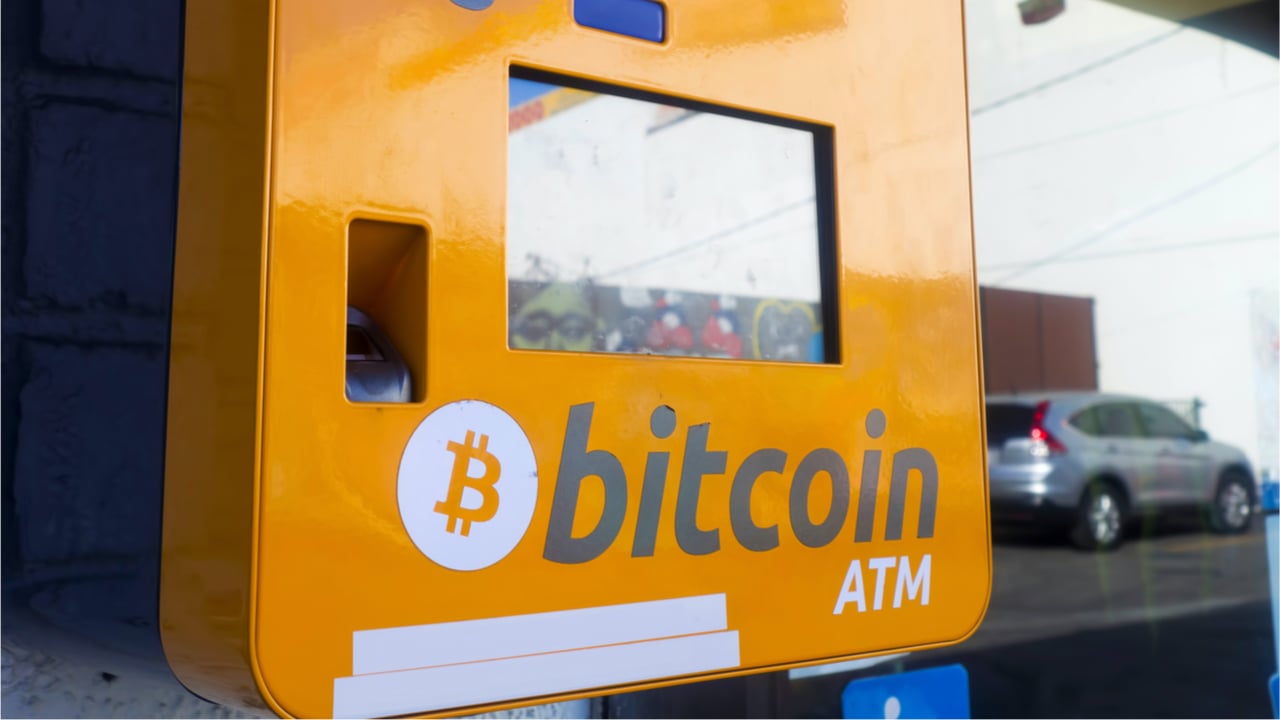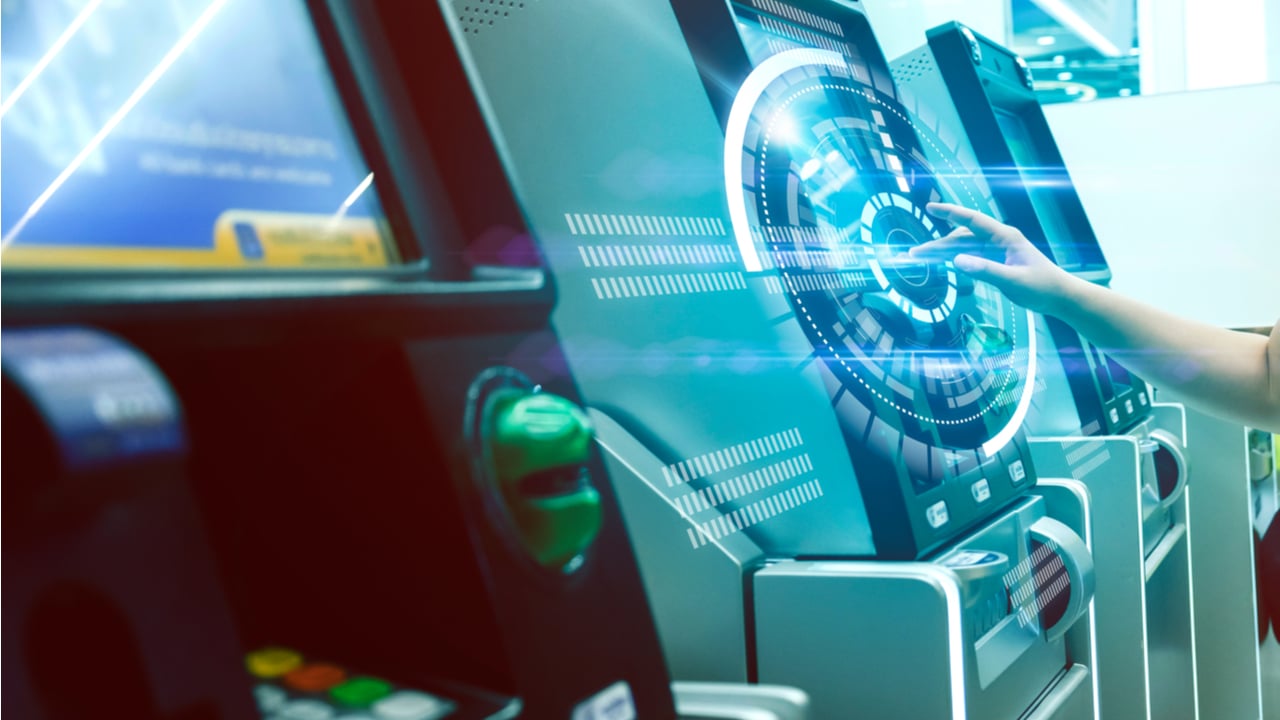 Users of the Telegram messenger will now be able to send each other the leading stablecoin, tether (usdt), directly in the chats. The new option expands the list of cryptocurrencies available for purchase, sale, and trade in the messaging app. Tether Added to Wallet Bot in Telegram Messenger Support for transactions with the U.S. dollar-pegged […]
Users of the Telegram messenger will now be able to send each other the leading stablecoin, tether (usdt), directly in the chats. The new option expands the list of cryptocurrencies available for purchase, sale, and trade in the messaging app. Tether Added to Wallet Bot in Telegram Messenger Support for transactions with the U.S. dollar-pegged […] On Thursday, the fiat-to-crypto onramp business Moonpay announced a multi-year partnership with the non-fungible token (NFT) marketplace Looksrare. According to the deal, Looksrare will allow marketplace users to buy and sell crypto assets through Moonpay’s services. Moonpay and Looksrare Join Forces to Streamline NFT Transactions Moonpay, the fiat-to-crypto service founded in 2019, revealed that it […]
On Thursday, the fiat-to-crypto onramp business Moonpay announced a multi-year partnership with the non-fungible token (NFT) marketplace Looksrare. According to the deal, Looksrare will allow marketplace users to buy and sell crypto assets through Moonpay’s services. Moonpay and Looksrare Join Forces to Streamline NFT Transactions Moonpay, the fiat-to-crypto service founded in 2019, revealed that it […]
These Bitcoiners from London have "no regrets" about their decision to sell Bitcoin to start a family.
Bitcoin (BTC) gains helped “Noodle,” a London-based Bitcoiner, to afford in vitro fertilization (IVF) treatments for his family. Noodle’s story comes to life in the latest edition of Cointelegraph’s Crypto Stories.
IVF treatments can be expensive, with success rates ranging from 4% to 38%, depending on various factors. Fortunately, profits from buying and holding Bitcoin provided the necessary funds for Noodle to start a family.
Noodle, who first heard about Bitcoin in 2012, decided to sell some of his BTC to pay for IVF treatment for his wife. He favored selling BTC over taking out a loan, converting over $70,000 in Bitcoin into fiat currency over a few years to pay for the treatments.
Noodle’s journey with Bitcoin began when he was at the gym. An acquaintance introduced him to the Silk Road, a now-defunct marketplace where users could buy and sell various items using BTC. Noodle was convinced to buy 7 BTC at $57 each and ended up using it to buy cannabis online.
From that point on, Noodle fell down the rabbit holes of finance, education and the world of Bitcoin. He even convinced his wife, whom he had been with since 2008, to invest some of their wedding money into Bitcoin. Little did they know, this investment would eventually fund IVF treatments to help them have children.
Related: Crypto Stories: Dr. Adam Back shares his life of hacks
Despite the initial stigma around IVF, the Noodle family was able to have two children thanks to the profits from their Bitcoin investment. Noodle told Cointelegraph that he has “no regrets” about his decision to sell BTC to start a family and emphasized the importance of being able to make informed financial decisions.
For many people, the decision between holding Bitcoin or using it for practical purposes can be a difficult one. However, for Noodle, the choice to sell was a clear one, and he is grateful for the opportunity that his Bitcoin investment provided.

As a majority stakeholder, About Capital intends to fuel Huobi’s international brand promotion and business expansion among other initiatives.
Crypto exchange Huobi Global announced that About Capital Management (HK) Co. Ltd, an Hong Kong based-asset management firm became the exchange’s controlling shareholder following a successful buyout deal.
While the transaction of an undisclosed amount crowns About Capital as Houbi’s new controlling shareholder, the exchange stated that core operation and business management teams would have no impact due to the transition.
As a majority stakeholder, About Capital intends to fuel Huobi’s international brand promotion and business expansion initiatives, adding that:
“Upon successful implementation of the initiatives, Huobi Global will be well positioned to provide first-class trading and investment services to international investors.”
About Capitals also disclosed plans to build a global strategic advisory board “led by leading industry figures” among other initiatives such as setting up margin and risk provision fund, and measures to enhance the exchange’s competitiveness.
Previously, in August, Sam Bankman-Fried, the CEO of crypto exchange FTX, denied a Bloomberg report that claimed FTX was planning to purchase Huobi. Huobi concluded the announcement by highlighting its exit from China.
Related: Huobi to delist Monero and other privacy coins, citing regulatory pressures
On Sept. 14, Huobi Global became the third major cryptocurrency exchange to pen a blockchain ecosystem development agreement with the South Korean city of Busan.
According to an official announcement from Huobi, the partnership will see the company provide research and development, technology and financial support for the Busan Digital Currency Exchange. In addition, Huobi is also set to assist in identifying and hiring blockchain talent for Busan’s local exchange.

The study reveals that blockchain technology is well-positioned to take over more than 50% of the entire leasing and sale process across commercial real estate.
Solutions built around blockchain technology offer several upfront benefits, including a censorship-resistant, irreversible distributed ledger. Deloitte’s study revealed blockchain’s position as a perfect fit for real estate use cases around leasing and selling.
Blockchain innovations often outdo traditional systems by not only digitizing information but also introducing a near real-time trustless environment, among other features. Big Four accounting firm Deloitte uncovered six opportunities for blockchain to disrupt the commercial real estate (CRE) industry.
The above infographic highlights six key pain points for CRE owners when leasing and selling their properties and maintaining complex transaction data. With this in the backdrop, Deloitte noted six opportunities for blockchain to serve the industry, which include improving processes around searching for properties and allowing people to make better decisions around leasing and purchasing.
Due to paperless processes, Deloitte envisions blockchain expediting property and payment evaluations and better-streamlining cash flow management. In addition, the technology's inherent qualities also offer cheaper means of managing property ownership history while enabling efficient processing of financing and payments.

The study reveals that blockchain technology is well-positioned to take over more than 50% of the leasing and sale process, excluding steps requiring physical intervention such as property inspection and loan negotiations. Deloitte noted:
“Blockchain seems to be most applicable to dynamically configurable or co-sharing spaces, which have a relatively higher number of tenants and shorter duration leases.”
While Deloitte’s report reaffirms blockchain’s potential to drive transparency, efficiency, and cost savings for commercial real estate owners, companies and CRE owners are advised to follow a three-step approach — educate, collaborate or create, facilitate — in determining the best way ahead for blockchain implementation.
Related: Nonfungible tokens don't live on the blockchain, experts say
While nonfungible tokens (NFTs) have been advertised as blockchain-based technologies, experts contradict the notion.
Speaking to Cointelegraph, Jonathan Victor, the Web3 storage lead at Protocol Labs, revealed that main chains are very limited in size, which in turn makes storing data on the blockchain to be expensive. As a result, NFT ecosystems often opt for off-chain storage solutions.
Alex Salnikov, the co-founder of Rarible, confirmed the above claim as he told Cointelegraph:
“It is important to understand that the NFT living in a user’s wallet only points to the file it represents — the actual file itself, also known as an NFT’s metadata, is typically stored elsewhere.”
Despite the revelation, both experts noted that storage for NFTs can still be considered decentralized.

Argo reported it had an outstanding balance of $22 million on a loan from Galaxy Digital, from which it secured BTC-backed loan agreements in 2021.
Argo Blockchain has joined crypto mining firms including Bitfarms, Core Scientific and Riot Blockchain in selling part of its Bitcoin holdings.
In a Thursday blog post, Argo said it sold 637 Bitcoin (BTC) in June for an average price of $24,500 — roughly $15.6 million. The company planned to use the funds to reduce its debt to Galaxy Digital, from which Argo secured separate $20 million and $25 million BTC-backed loan agreements in 2021. The mining company reported that as of June 30, it had an outstanding balance of $22 million on the loan and holds “sufficient liquidity to avoid any potential liquidation of the BTC-backed loan if Bitcoin price continues to decline.”
“We have seen positive results from our risk management strategy through which we have reduced the company’s exposure to its BTC-backed loan, and we have hired a full-time derivatives trader,” said Argo CEO Peter Wall. “We believe the company is well positioned to navigate the current market conditions and further increase our efficiencies.”
Argo's June Operational Update is now live. Details:
— Argo (@ArgoBlockchain) July 7, 2022
-Mined 179 BTC or BTC Equiv, up 44% from May
-Mining rev was £3.38 m [$4.35 m]
-Month-end, we held 1953 Bitcoin, of which 210 were BTC Equivalents
More in today’s press release: https://t.co/cHiFYcW4uf
#ARB $ARBK #BTC
Following the crypto sales, Argo said it held 1,963 BTC and BTC equivalents as of June 30, roughly 18% less than that reported in May. Other mining firms including Bitfarms, Core Scientific and Riot Blockchain all reported selling a significant percentage of their BTC holdings in June amid the market downturn as the price of the crypto asset dipped under $18,000.
Related: Bitfarms sold 3K Bitcoin as part of strategy to improve liquidity and pay debts
Argo reported that it had curtailed mining operations at its Helios facility in Dickens County, Texas in May following high temperatures — many parts of the state experienced days of triple-digit heat — leading to an “increased energy demand and higher electricity prices.” However, its June report showed an increase in mined BTC and BTC equivalents from 124 to 179 due, in part, to “greater uptime at the Helios facility.” Riot Blockchain also announced on Thursday plans to move some of its mining fleet from New York to Texas.

The sale left the firm with 1,959 BTC at the end of the second quarter, a more than 75% drop when compared with its reported 8,058 BTC holdings as of May 31.
United States-based cryptocurrency mining firm Core Scientific sold more than 7,000 Bitcoin in June to pay for servers, increase its data capacity, and settle debts.
In a Tuesday announcement, Core Scientific said it had sold roughly $167 million worth of Bitcoin (BTC) in June at an average price of $23,000 — 7,202 BTC. The sale left the firm with 1,959 BTC — roughly 21% of its holdings — and $132 million in cash as of June 30, a more than 75% drop when compared with its reported 8,058 BTC holdings as of May 31.
According to the firm, it used proceeds from the crypto sale to pay for ASIC servers, schedule debt repayments, and invest in additional data center capacity. The company reported it had produced 1,106 BTC in June, with self-mining accounting for 57% of its data center capacity and crypto mining operations as of June 30 — more than 180,000 servers.
“Our industry is enduring tremendous stress as capital markets have weakened, interest rates are rising and the economy deals with historic inflation,” said CEO Mike Levitt. “Our company has successfully endured downturns in the past, and we are confident in our ability to navigate the current market turmoil.”
JUNE 2022 HIGHLIGHTS:
— Core Scientific (@Core_Scientific) July 5, 2022
-1,106 #Bitcoin self-mined,
-10.3 EH/s self-mined
-+180,000 ASIC servers in operation
-7.6 EH/s co-location (hosting)
-Daily self-mining increased by 14% from June 1 (34.8) to June 30 (39.8)https://t.co/KeypwtMEfr
Amid a market downturn and extreme price volatility in cryptocurrencies, many crypto miners have reportedly sold their self-mined coins and in some cases liquidated holdings. In June, Canadian crypto mining firm Bitfarms sold 3,000 BTC — roughly 47% of its holdings at the time — for $62 million as part of a strategy to improve liquidity and pay debts.
Related: Bitcoin miner Mawson to defer all major capital expenditures until market conditions normalize
Levitt said Core Scientific aimed to expand its capacity to 30 exahashes/second by the end of 2022 while “taking advantage of distressed opportunities that may arise.” The company plans to release its earnings report from Q2 2022 on Aug. 11.

While the Otherdeed NFTs could be minted only in APE, it also required ETH for gas fees.
While the community was witness to the largest NFT mint yet, Ethereum (ETH) gas prices rose to unprecedented levels, in addition to users experiencing failed transactions due to blockchain bottlenecks.
Bored Ape Yacht Club creator Yuga Labs launched a sale of Otherdeed non-fungible tokens (NFTs) that represents digital land deeds on their new venture, the Otherside metaverse. With each piece of land selling at 305 ApeCoin (APE) or nearly $5,800 at the time of the sale, Yuga Labs made $319 million after 55,000 NFTs sold out almost instantly.
The Otherdeed NFT mint is sold out - we are awestruck at the demand shown tonight. Apes and Mutants, the opening of the 21-day claim period is being delayed until the price of gas drops to reasonable levels. We’ll tweet when the claim opens. https://t.co/iRz64lklbv
— OthersideMeta (@OthersideMeta) May 1, 2022
While the Otherdeed NFTs could be minted only in APE, it also required ETH for gas fees. The minting mechanics set by Yuga Labs envisioned the sale of NFTs in phases while anticipating a momentary rise in gas prices, which would then decelerate the number of users minting the NFTs:
“This pattern of mint → bump limit → mint → bump limit will continue until NFT supply is exhausted. This approach is expected to prevent an apocalyptic gas war, while also encouraging as broad a distribution as possible.”

The above screenshot was shared by Redditor u/jeux99 sharing their experience on high gas fees at the time, asking:
“Why is gas $450 right now??? I've seen high gas fees, but nothing like this before!”
As rightly pointed out by another Redditor, u/johnfintech, Etherscan data shows that numerous users paid anywhere between 2.6 ETH ($6500) to 5 ETH ($14000) as gas fees.

Citing some of the issues related to using Ether during its NFT launch, Yuga Labs stated:
“We're sorry for turning off the lights on Ethereum for a while. It seems abundantly clear that ApeCoin will need to migrate to its own chain in order to properly scale.”
For those that lost their ETH holdings in gas due to failed transactions, Yuga Labs has promised to refund the gas amount back to the users.
Related: Vitalik Buterin proposes calldata limit per block to lower ETH gas costs
Ethereum’s infamous gas fees have been a long-standing concern among the community owing to the influx of ecosystems hosted by the blockchain, including NFTs.
In Nov. 2021, Ethereum co-founder Vitalik Buterin proposed a new block-wide limit on the total transaction calldata to decrease the overall transaction calldata gas cost over the ETH network.
While the community embraced the suggestion, it took over four months to implement EIP-4488 on the Ethereum-sidechain testnet on Geth. Community member Qi Zhou confirmed on 27th April about plans to upgrade the testnet within a month.
 During the last 12 months, there’s been an exponential number of cryptocurrency automated teller machines (ATMs) installed as data shows that 20,000 crypto ATMs were installed last year. This year machines are still being installed in great numbers and since December 30, there have been 2,759 machines added to the list of 36,659 crypto ATMs […]
During the last 12 months, there’s been an exponential number of cryptocurrency automated teller machines (ATMs) installed as data shows that 20,000 crypto ATMs were installed last year. This year machines are still being installed in great numbers and since December 30, there have been 2,759 machines added to the list of 36,659 crypto ATMs […] The number of cryptocurrency ATMs around the world has grown exponentially in 2021, with over 20,000 new installations made since last December. That’s more than the total of all crypto teller machines put into operation in the previous seven years. Close to 34,000 Crypto ATMs Available Globally ATM locations offering users options to buy and […]
The number of cryptocurrency ATMs around the world has grown exponentially in 2021, with over 20,000 new installations made since last December. That’s more than the total of all crypto teller machines put into operation in the previous seven years. Close to 34,000 Crypto ATMs Available Globally ATM locations offering users options to buy and […]